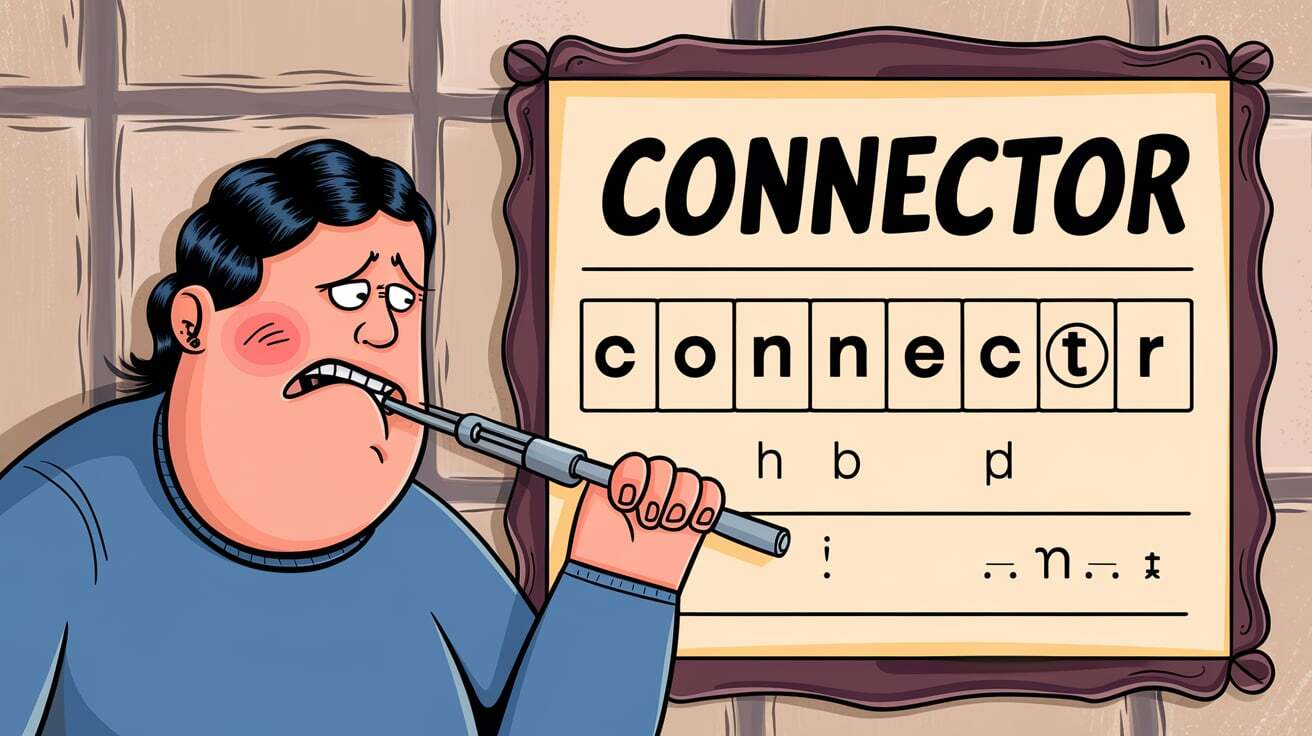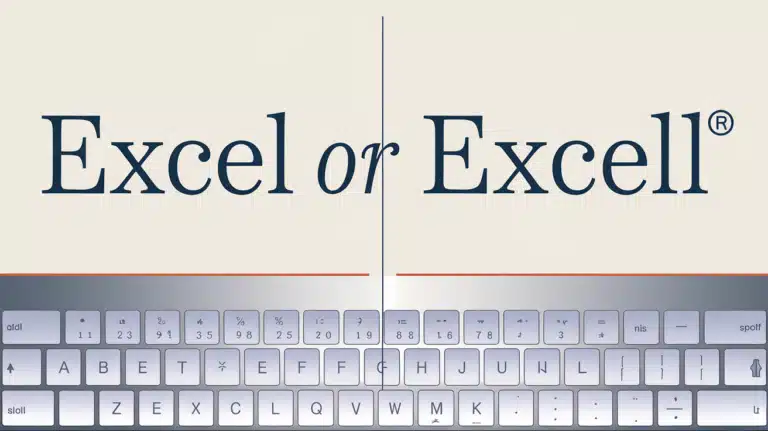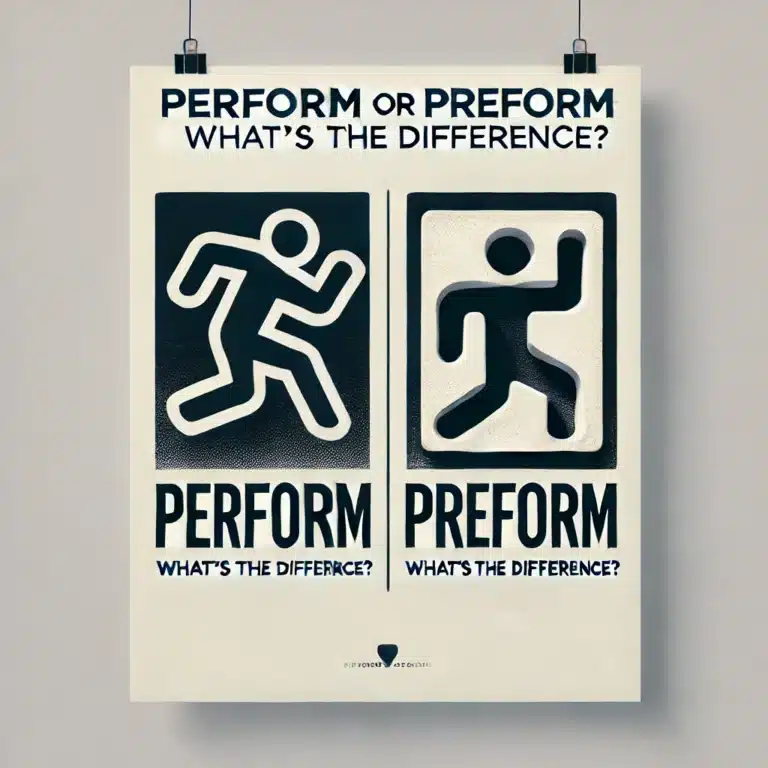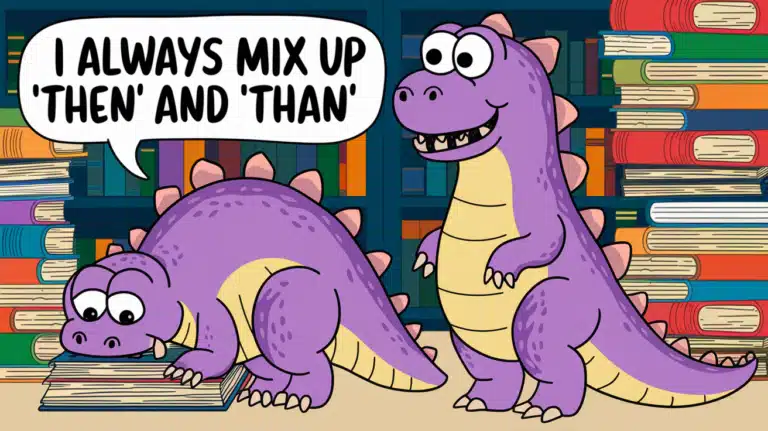Connector or Connecter: Solving the Spelling Puzzle
In our tech-driven world, precision matters. Whether you’re plugging in your phone or setting up a complex bridge structure, connectors play a crucial role. But here’s a curveball: is it “connector” or “connecter”? This common spelling dilemma has puzzled English speakers for years. Let’s dive in and unravel this linguistic knot once and for all.
The Connection Conundrum: Why Spelling Matters
Ever found yourself second-guessing whether to write “connector” or “connecter”? You’re not alone. This seemingly minor difference can impact everything from technical documentation to everyday communication. In our quest for grammatically correct writing, it’s crucial to understand the nuances of these spellings.
“Language is the road map of a culture. It tells you where its people come from and where they are going.” – Rita Mae Brown
This quote reminds us that language evolves, and so do spelling conventions. Let’s explore how this applies to our connector conundrum.
Defining Our Terms: What Are We Really Talking About?
Before we dive into the spelling debate, let’s clarify what we mean by “connector.”
A connector is a physical object or device used to join two or more things together, typically in electrical, mechanical, or computer systems. It’s the unsung hero that keeps our tech-driven world humming along.
Examples of connectors include:
- USB ports
- Ethernet cables
- Audio jacks
- Power adapters
In more abstract terms, a connector can also refer to words or phrases that link ideas in writing or speech. But for our purposes, we’re focusing on the tangible item.
Read About : Feal vs Feel – Are You Using the Right One?
The Great Spelling Debate: Connector or Connecter?
Now, let’s tackle the heart of our dilemma: which spelling is correct?
The short answer: “Connector” is the standard spelling recognized by most contemporary language authorities.
The longer answer: While “connecter” was once an acceptable variant, it’s fallen out of favor in modern usage. Here’s a quick breakdown:
| Spelling | Status | Usage |
|---|---|---|
| Connector | Preferred | Widely used in American and British English |
| Connecter | Outdated | Rarely used, considered a variant |
But why did this shift occur? Let’s take a trip down etymology lane to find out.
A Trip Down Etymology Lane
The word “connect” comes from the Latin “connectere,” meaning “to join together.” As English evolved, so did the spelling of words derived from it.
The suffixes “-or” and “-er” both indicate “one who does something” or “something that does something.” However, “-or” is more commonly used for words of Latin origin, while “-er” is typically used for words with Germanic roots.
Given the Latin origin of “connect,” it makes sense that “connector” eventually won out as the preferred spelling.
Why “Connecter” is Fading into Obscurity
Several factors have contributed to the decline of “connecter”:
- Standardization in technical writing: As technology advanced, the need for consistent terminology grew. “Connector” became the go-to spelling in technical documents.
- Influence of major tech companies: Giants like Apple, Microsoft, and IBM consistently use “connector” in their documentation, setting an industry standard.
- Global communication: As English became the lingua franca of technology, a standard spelling helped avoid confusion.
The “-or” vs. “-er” Showdown
The “connector” vs. “connecter” debate isn’t unique. Many words face similar spelling variations. Here’s a quick look at some other examples:
- Adapter vs. Adaptor
- Adviser vs. Advisor
- Protector vs. Protecter
In most cases, the “-or” spelling has become more common, especially in American English. However, there are exceptions, like “computer” and “user.”
What the Experts Say
Let’s look at what some authoritative sources have to say:
- Merriam-Webster Dictionary: Lists “connector” as the main entry, with “connecter” as a variant.
- Oxford English Dictionary: Recognizes both spellings but notes “connector” as more common.
- Chicago Manual of Style: Recommends “connector” for consistency in technical writing.
The consensus? While both spellings are technically correct, “connector” is overwhelmingly preferred in contemporary language use.
Real-World Usage: How Industries Stack Up
Different industries have their own preferences:
- Tech Industry: Unanimously uses “connector” in product descriptions, manuals, and technical documentation.
- Electrical Engineering: Strongly favors “connector” in schematics and specifications.
- Consumer Products: Packaging and marketing materials consistently use “connector.”
Case Study: Apple’s Lightning Connector
When Apple introduced its Lightning connector in 2012, they consistently used the “-or” spelling across all documentation and marketing materials. This choice reinforced the industry standard and influenced countless other tech companies.
The Impact of Spelling Choice
Choosing between “connector” and “connecter” isn’t just about being right—it can have real-world implications:
- SEO Considerations: Using the more common spelling “connector” can improve search engine visibility for technical content.
- Brand Consistency: Sticking to one spelling across all materials helps maintain a professional image.
Beyond Connector: Similar Word Pairs
The “-or” vs. “-er” debate extends to other words. Here are a few more to keep an eye on:
- Investor vs. Invester
- Conductor vs. Conducter
- Instructor vs. Instructer
In each case, the “-or” spelling is more common and widely accepted.
Making the Right Choice: A Practical Guide
When deciding between “connector” and “connecter,” consider these tips:
- Context is king: In technical or formal writing, always opt for “connector.”
- Know your audience: If writing for a global audience, “connector” is the safer choice.
- Consistency is key: Whatever you choose, stick with it throughout your document.
The Future of “Connector” vs. “Connecter”
Language is always evolving, but some trends seem set to continue:
- Prediction: “Connector” will likely remain the dominant spelling, especially in technical contexts.
- Technology’s role: As tech continues to shape language, standardized spellings like “connector” will become even more entrenched.
Conclusion: Connecting the Dots
In the great “connector” vs. “connecter” debate, “connector” comes out on top. It’s the spelling recognized by most authorities, preferred in technical fields, and widely used in everyday language.
Remember, language is a tool for clear communication. By choosing the more common spelling, you’re making it easier for your readers to connect with your message—no matter what kind of connector you’re talking about.
So next time you’re writing about that USB port or audio jack, go ahead and confidently type “connector.” You’ll be in good company.







